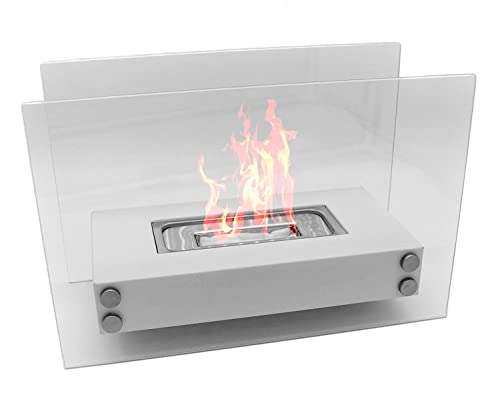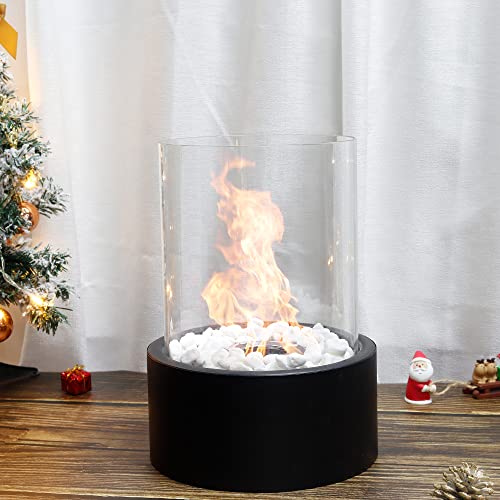The BIOFIRE System and Your Immune System
The BIOFIRE System provides syndromic infectious disease testing, empowering healthcare providers to select the appropriate test, the first time. Patients benefit from faster diagnoses and more targeted treatment. Clinicians benefit from better antibiotic stewardship. Labs save money while increasing efficiency.
The BioFire Pneumonia Plus Panel (PN panel) tests native sputum (including mini-BAL) and endotracheal lavage and bronchoalveolar liquids (including mini BAL) for 33 clinically important pathogens and resistance genes to antimicrobials within one hour.
Respiratory
The burning of biomass, including plants, wood and other organic materials, produces gaseous pollution and fine particles that negatively affect the respiratory system. Climate change may increase the negative effects of forest fires on human health.
In the United States wildfire smoke is linked to hospitalizations due to respiratory diseases like asthma, COPD, and
bioethanol fire Insert lung cancer. This kind of pollution to the air also increases the risk of developing cardiovascular diseases, and is a major contributor to the burden on disease among the most vulnerable populations.

In the COVID-19 epidemic, many communities were exposed levels of air pollution resulting from wildfires. The response to public health has been limited to a communication campaign about symptom management. This knowledge gap is alarming, due to the fact that smoking cigarettes and other sources of air pollution can cause health problems.
Researchers are now looking at the best ways to protect the public's health in future events of this type. NIH is funding research into this important public health issue through the BLUE CORAL study as well as its successor, FIRE CORAL.
First time an prospective study will assess the long-term effects of exposure to smoke from wildfires or other sources. FIRE CORAL enrolls adults who are hospitalized for COVID-19 index episode and who speak English or Spanish however, they are not pregnant. The FIRE CORAL protocol includes a series of tests in-person that objectively measure pulmonary function testing and lung imaging and functional assessments.
The lungs are particularly sensitive to the effects of smoke and other particles since they can trigger or worsen chronic respiratory illnesses, such as emphysema and COPD, and increase the risk of pneumonia. Smoke exposure can have negative effects on health. To minimize or avoid these effects, you should avoid outdoor activities and wear the EPA "N95" mask. This mask is designed to catch small particles.
Smoking cigarettes can cause irritation to the eyes, throat and nose. To minimize symptoms, drink lots of fluids and take medications that reduce inflammation, such corticosteroids.
Bloodstream
Your bloodstream is on the front lines of fighting germs that invade your body. Dendritic cells, special cells, function as the call center for your fire department. They are able to collect antigens from germs and release proteins that signal other white cells to fight. The white blood cell counts, differentials and band cells were increased after firefighters' firefighting shifts, as compared to levels following physical exertion without firefighting.
Skin
As the wildfires in California released smoke and dust into the air over the course of autumn and winter dermatologists were concerned how it could affect the skin of those who were exposed to it. Maria Wei, a graduate student at University of California, Irvine, is studying how extreme pollution from wildfires affects the skin. Her research was published on April 22, 2012 in Scientific Reports.
Wei's research has shown that the temperature of the skin changes based on the length of time that the body is exposed to flames. It takes upwards of two hours for a skin to reach its flash point -- the place where it begins to burn and turns to ash. It is important to avoid staying close to a fire or campfire and wear protective clothing if you're going outside in a humid or hot day.
Forest fires will continue occur, despite the steps implemented to reduce the risk of wildfire pollution. Wei is forecasting that the number of people suffering the effects of wildfires will grow as climate change causes more and more forests to be burned. This means that more people will have to wear long sleeves and hats and thick moisturizers.
It's also worth knowing that the atopic dermatitis (itchy skin) that a lot of people suffer from can be made worse by the air pollution from wildfires. She suggests that this is because the particles in smoke can block pores, which makes atopic dermatitis worse.
Another issue is the fact that atopic dermatitis is known to make people more sensitive to UV light, which can also be aggravated by smoke from wildfires. This can result in people seeking out tanning salons to apply a tan with less protection.
While a cold and
indoor ethanol fireplaces bio ethanol inset fire ethanol fire (
Source) facial may help reduce the effects of atopic dermatitis, it's not recommended for anyone who has an open wound or rash on their face. Patients who have active acne should avoid it as well If you're breastfeeding or pregnant, it is recommended to avoid this procedure altogether. The IS Clinical Fire & Ice Facial located at Novuskin Las Vegas' premier membership MedSpa is a result-driven, intensive facial that bridges between the mild facelift and the peel, but without the need for any downtime. It is designed to resurface skin, improve rosacea and reduce acne scarring and fine lines, as well as stimulate cellular renewal. This is a great treatment to give your skin a glowing glow.
Infections
The human body is a complex system of organs and tissues that work together to guard us against infection. Infections can be caused by microorganisms such as parasites, viruses and
Biofuel fireplace Insert bacteria that infect healthy cells and cause them to multiply uncontrollably. Your immune system can react by exhibiting symptoms of illness. These symptoms can include a runny nose to an upset stomach and can also include a fever, swollen lymph glands or a rash. The symptoms you experience can be affected by the type of disease, its location, and even your temperature.
Infections can spread through various ways, but they are most often spread through airborne droplets that remain after a sniff or cough. This is how bacterial infections like strep, tuberculosis and meningococcal disease as well as viral infections such a common cold and influenza are spread. Certain bacterial infections, such as skin infections or sexually transmitted diseases (STIs) like gonorrhea or chlamydia are spread through direct contact with affected tissues or mucous surfaces or indirectly through surfaces that are contaminated. Some bacterial diseases are transmitted by bugs like ticks, mosquitoes or fleas and can be transmitted when they bite you.
Viruses, parasites and other microorganisms are tiny enough to be able to get into the bloodstream and cause infection to your cells. This can result in serious diseases like the common cold or AIDS. Fungi cause many skin conditions such as ringworm, athlete's foot, while some infect the lungs or nervous system, such as the rabies virus.

The BioFire Panel uses our innovative FilmArray Technology to test the bronchoalveolar and sputum samples to provide a complete list of pathogens that are involved in upper respiratory infections. The kit includes the reagent pouch which stores all the necessary chemistry to perform reverse transcription PCR, nested analysis and detection with a single device. This is a simple method that aids clinicians in identifying and treat patients suffering from several respiratory symptoms. The test has been approved as an Emergency Use Authorization and is available through bioMerieux's CLIA moderate and high complexity labs.



